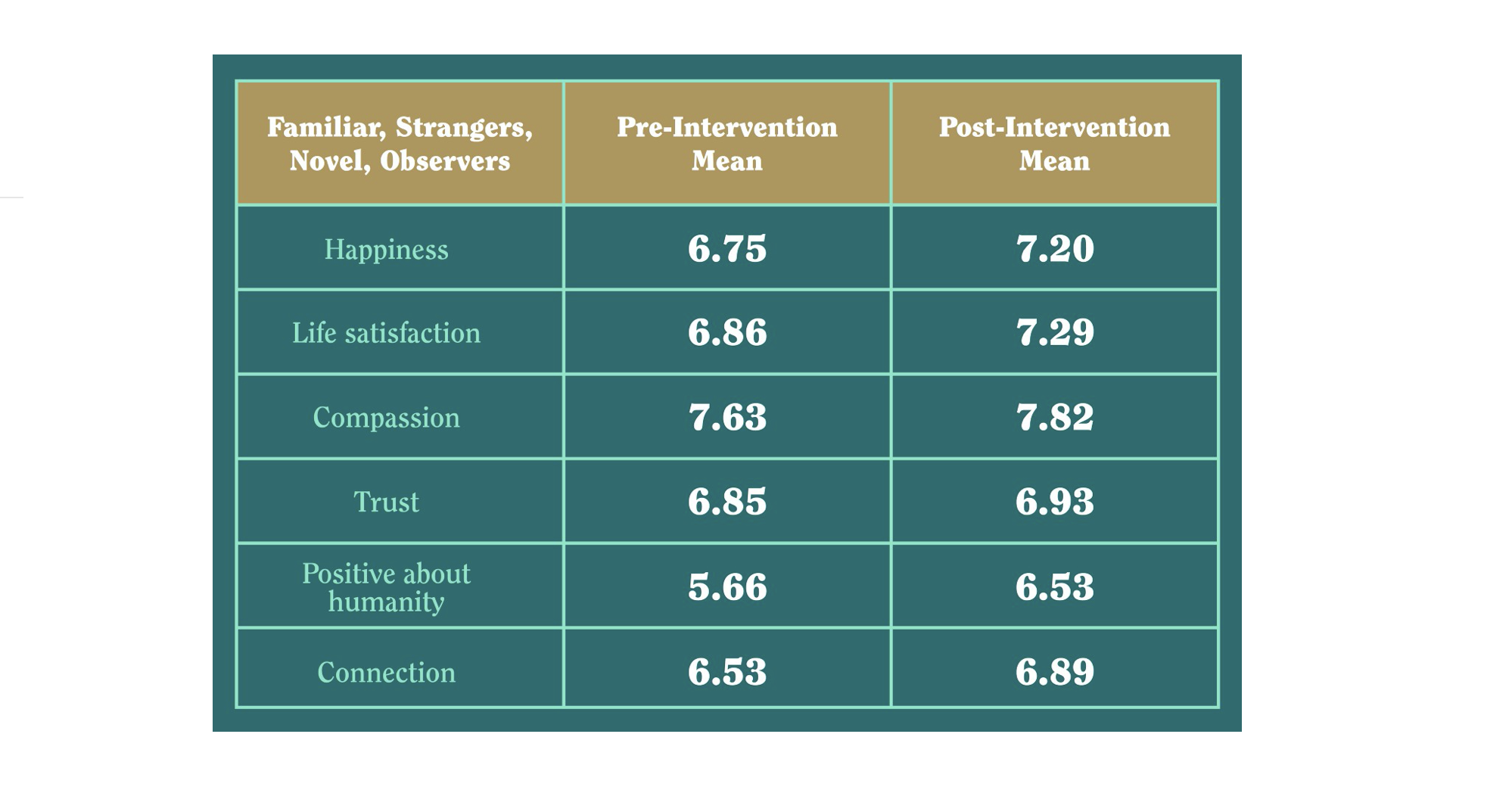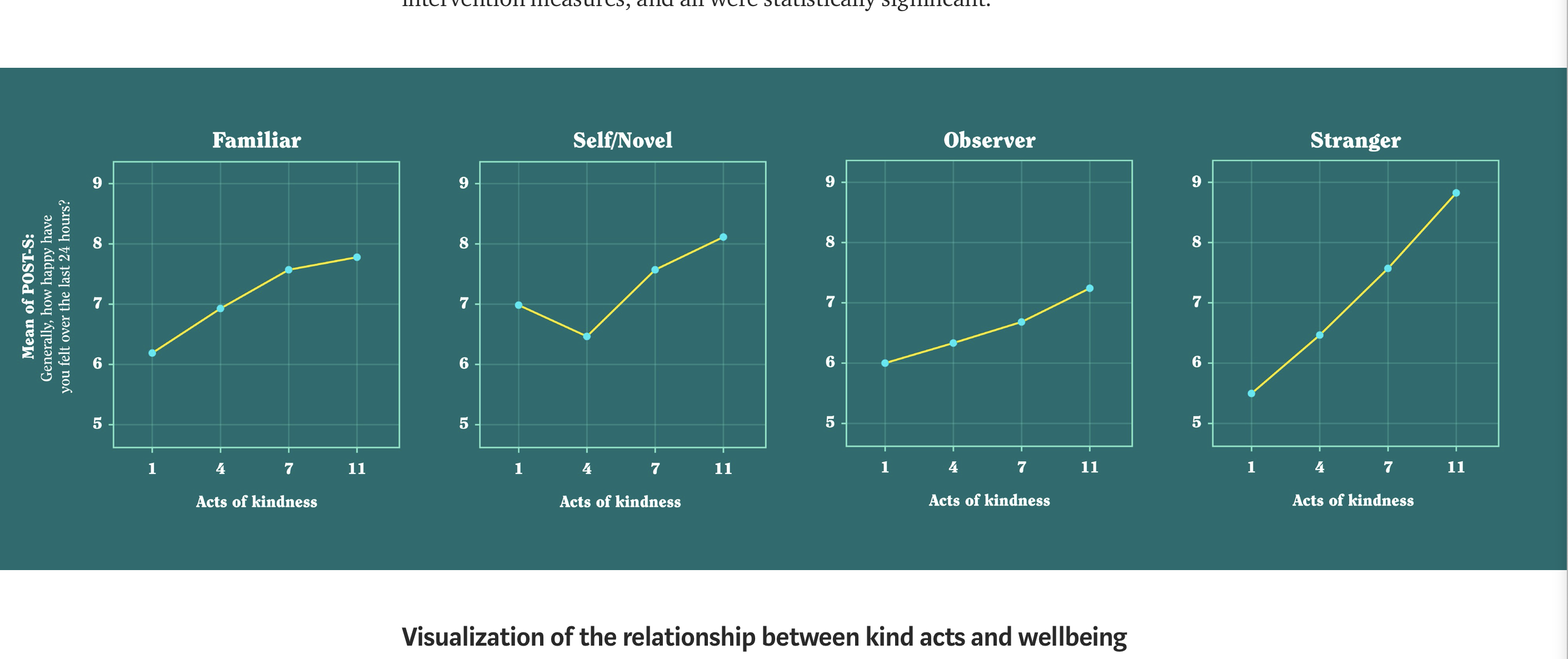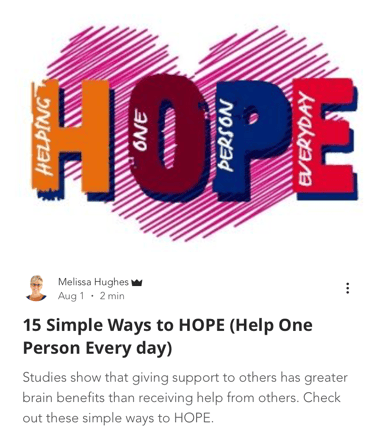Since the 1970’s, studies have shown how “social support,” (the perception or experience that one is loved and cared for by others, feels valued and a sense of belonging) relates to positive health outcomes. For example, supportive relationships directly correlate to reduced morbidity and mortality. In addition, people who experience stressful situations or tasks with a with a friend present (vs. alone) show reduced cardiovascular responses to the stressors and reduced pain-related neural activity in experiences that involve pain.
More recent research has focused on the health benefits of the support giver rather than the receiver. Studies show that support giving, much like support receiving, is associated with a number of beneficial mental and physical health outcomes such as lower mortality rates, fewer sick days at work, and reduced cardiovascular stress. In particular, helping other people impacts distinct regions of the brain involved in the regulation of stress responses, decision-making and social connection.
From an evolutionary perspective our brains are wired to operate better when we demonstrate social support to others than negative or even neutral attitudes toward others. A recent study used fMRI brain imaging to explore the benefits of showing kindness to others and found 3 specific neurobiological benefits.
- Reduced activity in dorsal anterior cingulate cortex, right anterior insula, and right amygdala – stress response
- Increased activity in left and right ventral striatum –decision making and reward
- Greater activity in septal area – social connecting and bonding
For this study, participants were asked about various scenarios in which they either gave or received social support. For example, having "someone to lean on" or "looking for ways to cheer people up" when they were feeling down. As you might expect, both giving and receiving social support correlated to lower reported negative psychosocial outcomes. However, when the researchers conducted a series of fMRI neuroimaging tests to explore the neural mechanisms of how specific brain areas were affected by giving versus receiving social support, they found that giving social support ultimately had greater brain benefits than receiving.
Another study conducted at Oxford recruited almost 700 people and analyzed the impact of kindness in four different categories and a control group that did not perform or intentionally observe acts of kindness.
Familiars: Acts of kindness were carried out on family and close friends
Strangers: Acts of kindness were carried out on strangers
Self/Novel: Acts of kindness were carried out on oneself, and involved doing something atypical
Observers: Acts of kindness were not carried out personally, but participants were required to observe other people carrying out acts of kindness
Participants were asked to perform small acts of kindness for seven days - anything from buying someone a cup of coffee to dropping a card in the mail or simply spending time. Then they compared their happiness, life satisfaction, compassion, trust, positivity, and human connection levels before and after.
They found that the kindness intervention had a positive effect on every single category tested.
They also found that the increase in happiness was dependent on the number of acts completed — that is, the more acts of kindness, the happier they were.


Kindness in the Workplace
In a more recent 2017 study, researchers extended this body of work and conducted a functional analysis of how kindness reinforces kind behavior in the workplace. Employees were randomly assigned to be Givers, Receivers, and Controls. Givers practiced 5 acts of kindness for a personalized list of Receivers over 4 weeks. They found that Givers and Receivers show increased feelings of well-being in both the short-term (e.g., on weekly measures of competence and autonomy) and the long-term (e.g., Receivers became happier after 2 months, and Givers became less depressed and more satisfied with their lives and jobs). Maybe more importantly, Givers’ prosocial acts inspired others to act. Receivers paid their acts of kindness forward with 278% more prosocial behaviors than the control group.
Kindness enhances mood, overall well-being, and outlook on life - and it's contagious! Simply stated, when you help others, you change your own brain and the brains of those around you.
H.O.P.E. Challenge
Maybe it’s time for a little less meanness and a little more kindness. My challenge to you is to put the HOPE strategy to work.
Help
One
Person
Every day
Kindness looks different to everyone and it doesn’t have to be expensive or grandiose to be meaningful. Give it a try for one week. Every day starting today, look for one person to help through kindness or support. Then come back here and share your experience in the comments!









